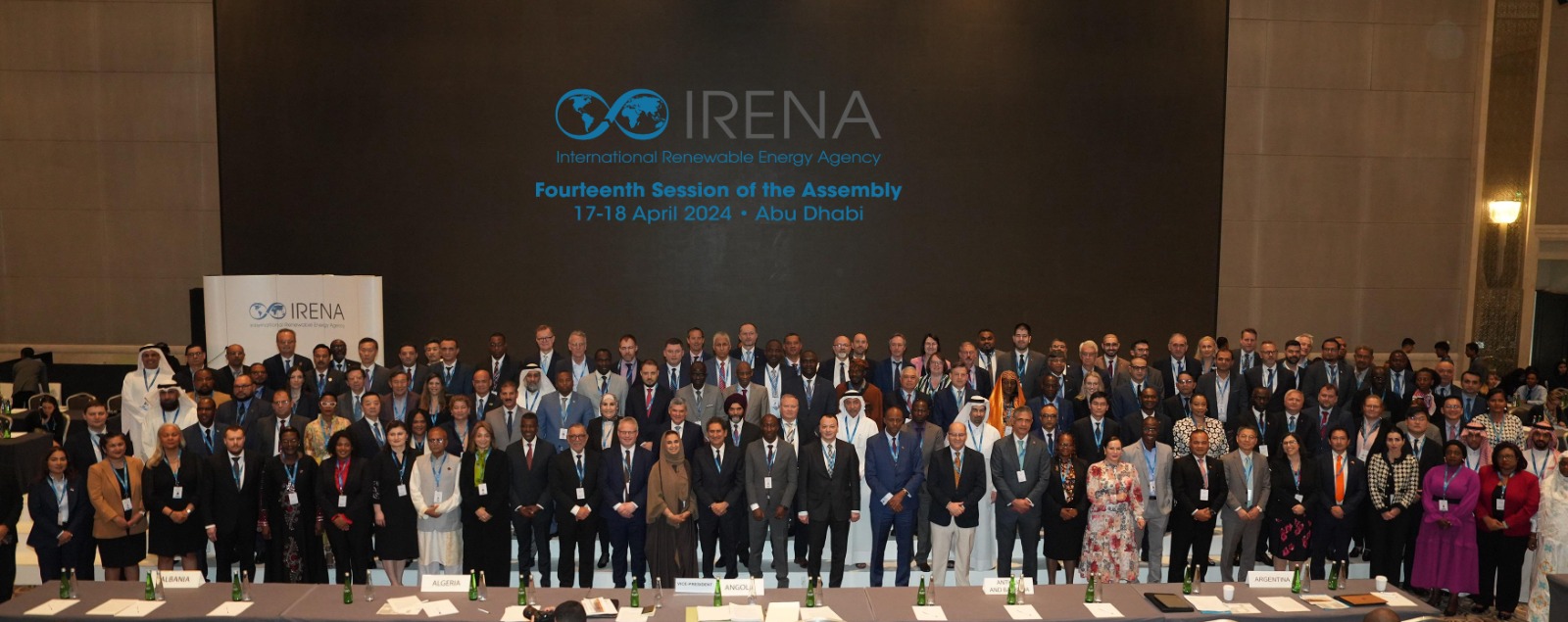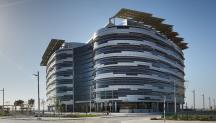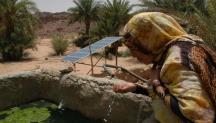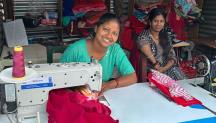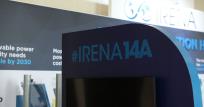
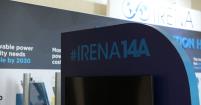
Six Key Takeaways from the 14th IRENA Assembly
Newsletter
Assembly highlighted key priorities to triple renewables and double energy efficiency by 2030 through infrastructure modernisation, enhanced financing, and stronger collaboration.
Held under the theme "Outcome of COP28: Infrastructure, Policies and Skills for Tripling Renewables and Accelerating the Energy Transition", this year’s Assembly built upon the momentum of the UAE Consensus to triple renewable power capacity and double energy efficiency by 2030.
Here are some of the main takeaways:
1. Key obstacles are limiting progress. It is time to overcome them.
Ministers and industry leaders at the 14th IRENA Assembly underlined the need to take tangible actions to drive the implementation of COP28 outcomes and accelerate the global energy transition to leave no one behind.
While the business case for renewables is strong, according to IRENA, deeply entrenched barriers stemming from the systems and structures created for the fossil-fuel era continue to hamper progress.
Overcoming these will be essential for the achievement of the COP28 outcomes through infrastructure investment in grids, land, and sea routes; evolving policy frameworks for targeted investments; and realigning institutional capacities to match future energy needs, according to IRENA’s World Energy Transitions Outlook.
IRENA Members also called for the monitoring and tracking of the tripling renewable capacity target by 2030.
As #IRENA14A concludes, I am convinced collectively, we can #3xRenewables by 2030 as set by #COP28.
— Francesco La Camera (@flacamera) April 18, 2024
I embrace the explicit request by @IRENA's global members to task the Agency w/ the annual tracking of progress & ensure, #renewables #energytransitions are implemented on ground. pic.twitter.com/z0r1V5PeIg
2. To ensure energy security, look at the future energy system through a new lens.
To address the critical issue of energy security, global leaders convened for the Ministerial Roundtable on the Geopolitics of Energy Security to discuss findings from IRENA’s new report on the topic. The report cautions against transposing the thinking from the fossil fuel era to the new energy system.
Participants concurred that the transition to renewable energy will profoundly influence global energy trade, international relations, and geopolitics, which would necessitate policy changes to prioritise equitable access and human security in renewable-dominated, electrified, digitalised, and regionalised energy systems.
Members urged that diversified investments are crucial to mitigate energy risks, not create new ones.
3. Re-imagine policies and skills for an evolving energy landscape.
At a dedicated session on policies and skills, delegates explored policies and strategies to hasten the energy transition, ensure inclusivity, and enhance local benefits. With a particular emphasis on overcoming skills shortages, the discussion focused on scaling education and training, including upskilling and preparing the youth for renewable energy jobs.
Ministers and industry leaders underscored the need for enabling policy and regulatory frameworks, increased access to affordable financing, diversified supply chains, and universal access to clean energy to facilitate a fair and inclusive energy transition.
Representing the IRENA Youth Forum, Nina Seime Bot-Timothy, Career Training Program Coordinator at Student Energy, provided a youth perspective on the need to prioritise including youth in budgeting for apprenticeships and enhancing opportunities for hands-on learning.
4. To accelerate the transition, modernise and expand energy infrastructure.
According to IRENA, around USD 720 billion per year of investment in power grids and flexibility is needed to limit global warming to 1.5°C.
The Assembly once again highlighted the urgent need for infrastructure modernisation to support the integration of renewable energy and the development of green hydrogen.
At a ministerial roundtable on the topic, the Utilities for Net Zero Alliance (UNEZA), a coalition of 27 global utilities and power companies, adopted a grid infrastructure action plan to address bottlenecks and unlock capital flows.
The UNEZA action plan focuses on three key critical areas: de-risking supply chains, facilitating policy and regulatory support, and mobilising capital.
5. An African-led transition necessitates African-led partnerships.
Africa, having received less than 2% of global investments in renewable energy over the past two decades, has historically been left behind in the global energy transition.
Built on the Nairobi Declaration on Climate Change announced during the Africa Climate Summit last year, the Accelerated Partnership for Renewables in Africa (APRA) spearheads a unique collaborative platform which puts the African nations at the helm. APRA's innovative approach is guided by national plans crafted by member countries, thereby ensuring that initiatives are tailored to specific needs and circumstances.
To discuss APRA’s implementation strategy and explore ways to maximise efforts, IRENA as APRA’s secretariat organised a plenary session at the 14th Assembly. The dialogue highlighted the need for a robust local private sector with APRA playing a vital role in this endeavour.
6. For energy to be accessible, financing needs to be affordable.
In a separate session on enhancing project bankability, delegates discussed the investment barriers for renewable energy projects, including the high capital costs that are unaffordable for developing countries.
Members also explored ways to mitigate risks through enabling policies that promote political stability and technological maturity.
Citing IRENA's Climate Investment Platform and Energy Transition Accelerator Financing Platform (ETAF) as key initiatives, Members underscored the importance of innovative financing tools to attract investors to renewable energy projects.
ETAF aims to support the energy transition by directing financing into key projects, with 13 strategic partners pledging USD 4 billion to develop over 10 gigawatts (GW) of capacity by 2030. IRENA’s Director General, Francesco La Camera announced a revised target at the 14th Assembly increasing the platform’s goal to reach USD 5 billion in funding by 2030.
For a more in-depth look at IRENA’s 14th-Assembly, visit the IRENA Assembly Blog.
